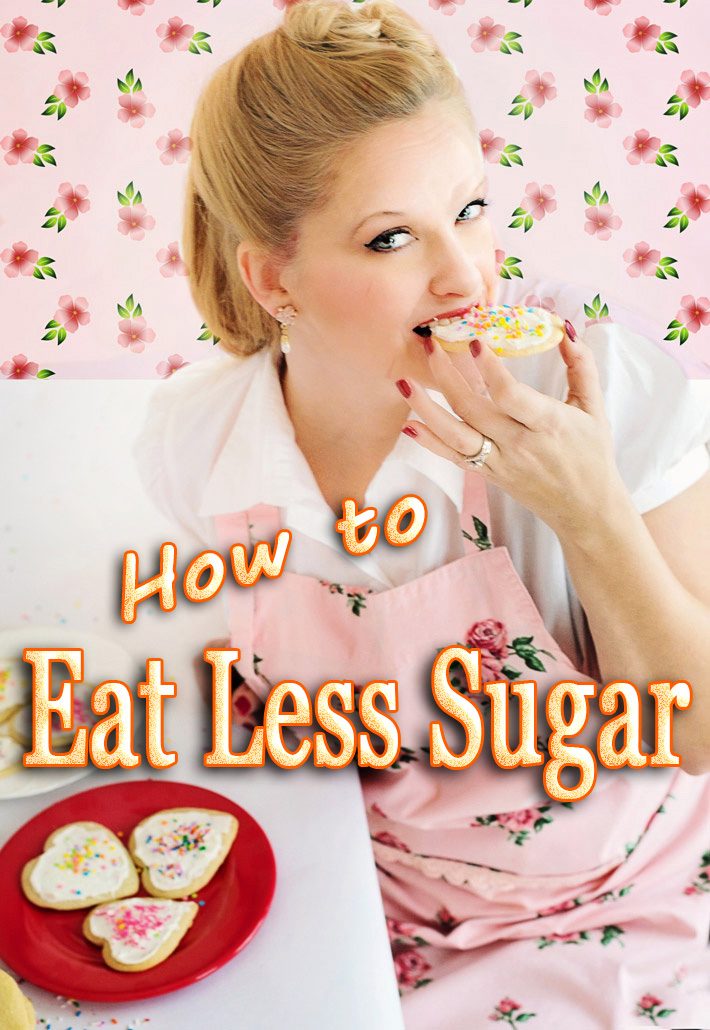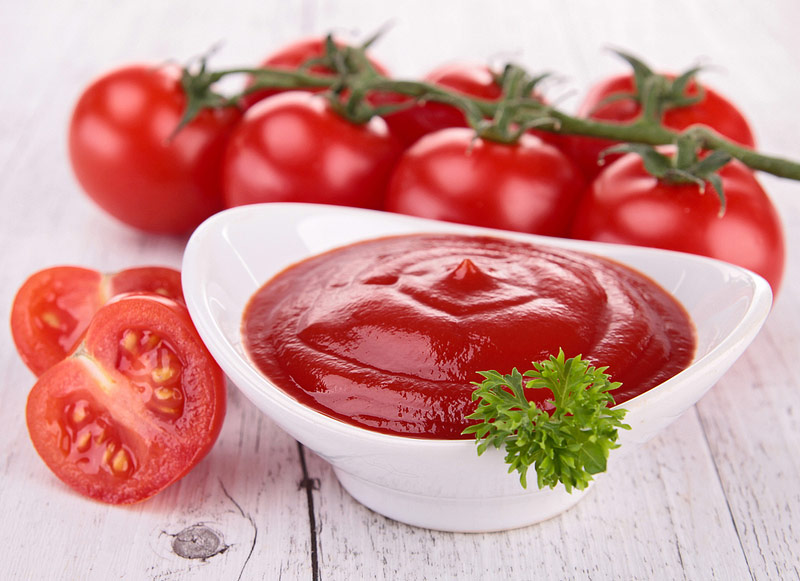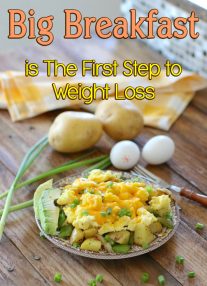
The reason why we all love sweet tasting food is that our bodies aren’t able to produce vitamin C, so nature gave us a sweet tooth to encourage us to eat fruit. The problem is, though, now that sugar is so readily available that most of us eat far too much of the stuff.
The average American, for example, eats an average of 22 teaspoons of sugar every day, but the American Heart Association (AHA) recommends that people only eat six teaspoons of good stuff a day. It’s not just the sugar that you put in your coffee or that you that sprinkle on your morning cereal that is causing this overload.
It’s also hidden in prepared food, sauces and snacks too. Cutting back on sugar can be harder to do than you might have thought, but it could drastically improve your health.
Here are ten top tips on how to eat less sugar and feel better:
1. Take it one step at a time
Sugar can become addictive, so to avoid making it too difficult to cut back on the amount of sugar that you consume, cut out the sugar gradually from your diet. If you wake up one morning and decide that you are going to stop eating and drinking all sweet things, you will get cravings and you will be less likely to succeed.
2. Cut down on the sweet drinks
Another good tip on how to eat less sugar is to cut down on the sweet drinks. A lot of your daily sugar intake is quite likely to be coming from what you drink and, the worst culprit of all, are soda drinks. A standard can of Coke contains 45 grams of sugar, which is the equivalent of six teaspoons. If you gulp your way through one of those super-sized cups of Coke at a cinema, they contain a staggering 44 teaspoons of sugar.
Here are some better drink options:
- Water: It’s free and has zero calories.
- Sparkling water with a squeeze of fresh lemon or lime: Homemade soda.
- Water with mint and cucumber: Amazingly refreshing in warm weather.
- Herbal or fruit teas: Drink them hot or cold with ice.
- Tea and coffee: Stick to unsweetened tea or black or flat white coffee.
3. Cook your own food
Cook your own meals at home and you will be able to control the amount of sugar that you add to them. Restaurant food, convenience meals and fast food, often contain far more sugar than you would add to recipe yourself. This is especially true of the cheaper food, which has it added to give it more flavor. Eating at home or packing food for the road is not only cheaper, but also a guaranteed way to control the ingredients you and your family eats.
You don’t have to cook elaborate meals. Simple tricks like marinating meat and fish in herbs, spices and olive oil will give you delicious results.
4. Eat fruit instead of candy

This is one of the best tips on how to eat less sugar. You can still satisfy your sweet tooth, but get a lot more nutrition, by eating fruit instead of candy. Fresh, or dried, fruit tastes very sweet and you will be getting vitamins, minerals and fiber as well. Fruit will fill you up more as well, so it will help you control your weight too. It’s much better for you than candy, a lot of which contains little else other than sugar. The key is to get plenty of protein and some healthy fats, and over time, your sweet tooth will calm down a bit.
5. Wean yourself off sugar in your hot drinks
If you have always had it in your tea and coffee, you will find it tough going to simply start drinking your hot drinks without any sugar. Try slowly cutting back the amount of sugar that you add to your drinks and that will give your palette time to adjust to the more bitter flavor. Spices like cinnamon, nutmeg, and turmeric can give food a new and different flavor that can replace the sweetness you’re used to.
6. Eat more whole grain foods
Eating refined carbohydrates creates a temporary spike in your blood sugar levels and that will increase your cravings for it later on. Switching to whole grain foods will help to even out the sugar levels and reduce your sugar cravings. The same is true of sugar itself. Refined white sugar will give you more of a sugar spike than something like maple syrup, or honey would, so try sweetening your food with alternatives.
7. Stop adding ketchup and other relishes to your food

Another good tip on how to eat less sugar is to stop adding ketchup and other relishes to your food. Ketchup, relishes and pickles contain a surprisingly large amount of sugar. Tomato ketchup, for example, contains 4 grams of good stuff in just a single teaspoon full and other relishes and sauces are not a lot better. Add flavor to your food when you are cooking it with herbs and spices and then you won’t need to add more flavor when you come to eat it.
8. Switch your breakfast cereal
You have to be careful which breakfast cereal you eat too, because many of them contain a lot of added sugar, plus the sugar you may sprinkle on top. Either, switch to a sugar-free brand of cereal, or even better, start eating a savoury breakfast instead.
9. Don’t fool yourself with healthy sounding treats
Our next tip on how to eat less sugar is simple: don’t trick yourself into thinking you are cutting back on it and eating more healthily by switching to treats that appear to contain a healthy ingredient. Don’t be fooled by the “healthy” marketing messages on some snacks. A cookie is still a cookie, even if it does have raisins in it, and it will still contain a lot of sugar.
10. Check food labels carefully
Many of us buy food items without taking a look at exactly what we’re eating. Sugar is added to a lot of foods and that includes savoury food, as well as sweet. Even some dried fruit has it added, so check the labels of the food you buy for any added sweeteners. It won’t always be listed as sugar in the list of ingredients, sometimes it is hidden as cane juice, fructose, dextrose or molasses. So, taking the time to look for them hiding in the food that we buy can help a great deal.
Note
Remember, while small amounts of natural sugar in a healthy person’s diet won’t cause catastrophic outcomes, higher-than-usual intakes can wreak havoc in the body. When it’s metabolized, it becomes fuel or energy for the body. However, if excess amounts are consumed, the excess may turn into fat deposits long-term which could lead to fatty liver disease,3 as well as other diseases such as diabetes and heart disease.
Related
Decoding Natural Sweeteners: Good or Bad?
If you like information in this post, please give it a five star review and help me share this recipe on facebook!
Please follow us on Facebook Page and enjoy our collection of recipes, crafts, fitness, health tips, gardening, DIY and more…





Leave a Reply